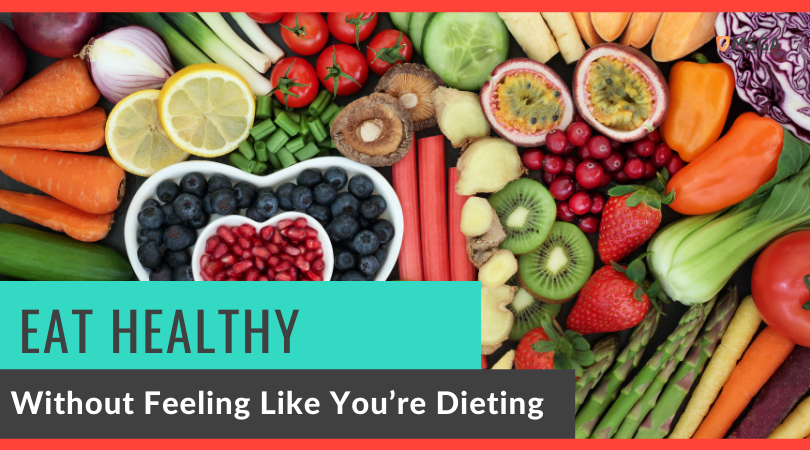Dieting can be a difficult thing, especially when you’re trying to make drastic changes to your normal routine. If you’d like to lose some weight and keep it off, the real secret is to do it with small changes that you incorporate into your lifestyle one at a time. In this article we are going to show you how to eat healthy without feeling like you’re dieting.
You will find the greatest success if you choose lifestyle changes that you can live with in the long term. For instance, if you love carbohydrates, it’s not likely that you’ll stay on a low-carb diet for long. In this situation, modifying your carbohydrate intake to an amount you find reasonable may work just fine for you.
These tips will help you eat nutritiously without feeling like you’re dieting:
- Cut portion sizes. Cutting your portion size, instead of altering what you eat, is always an option. It’s easy to forget what a healthy portion actually is, which may lead many people to eat more than they intended. Try eating a bit less and use smaller plates to make it seem like your plate is still full. You’ll still feel satisfied while eating less!
- Eat slowly. You don’t want to eat your meals at a snail’s pace, but it does take some time for your body to send signals to your brain that your stomach is full. If you’re eating slowly, you’ll get that message in time before you overeat.
- Eat more often. Experiment with dividing your meals into smaller sizes and eating more often. Eating smaller meals more often can keep you feeling full and energized and you may end up eating less.
- Drink plenty of water. You already know that water is vital to life. Water will also help you feel full. Drinking a glass of water prior to eating a meal helps you feel full sooner.
- Be mindful when eating at restaurants. Sometimes you’ll find that you have healthy eating habits at home, but it might all go out the window when you’re eating out. Restaurants are notorious for adding in extra salt, butter, and utterly ridiculous portion sizes. Either choose something that you know is healthy based on the nutritional facts, or split up your meal and take half of it home for tomorrow’s lunch.
- The calories you drink add up. When you’re calculating the calories you’ve eaten for the day, it’s easy to ignore all the calories in your drinks. If you’ve had mostly water, then it won’t be an issue. However, if you’ve stopped at Starbucks, or had fruit juice or a soft drink, you might find that you’ve had a whole meal’s worth of calories in just one drink.
- Maintain moderate exercise. Exercise is important to your overall health and well-being. If it’s hard to add time for an exercise routine to your schedule, remember that every bit of activity helps. Walking around the block, parking further out in the parking lot and taking the stairs instead of the elevator can give you some great exercise without taking up too much extra time.
Being healthy doesn’t need to be hard. You can get there by being aware of your body’s unique needs. Listen to your body and treat yourself right, and your weight goals are sure to follow.

